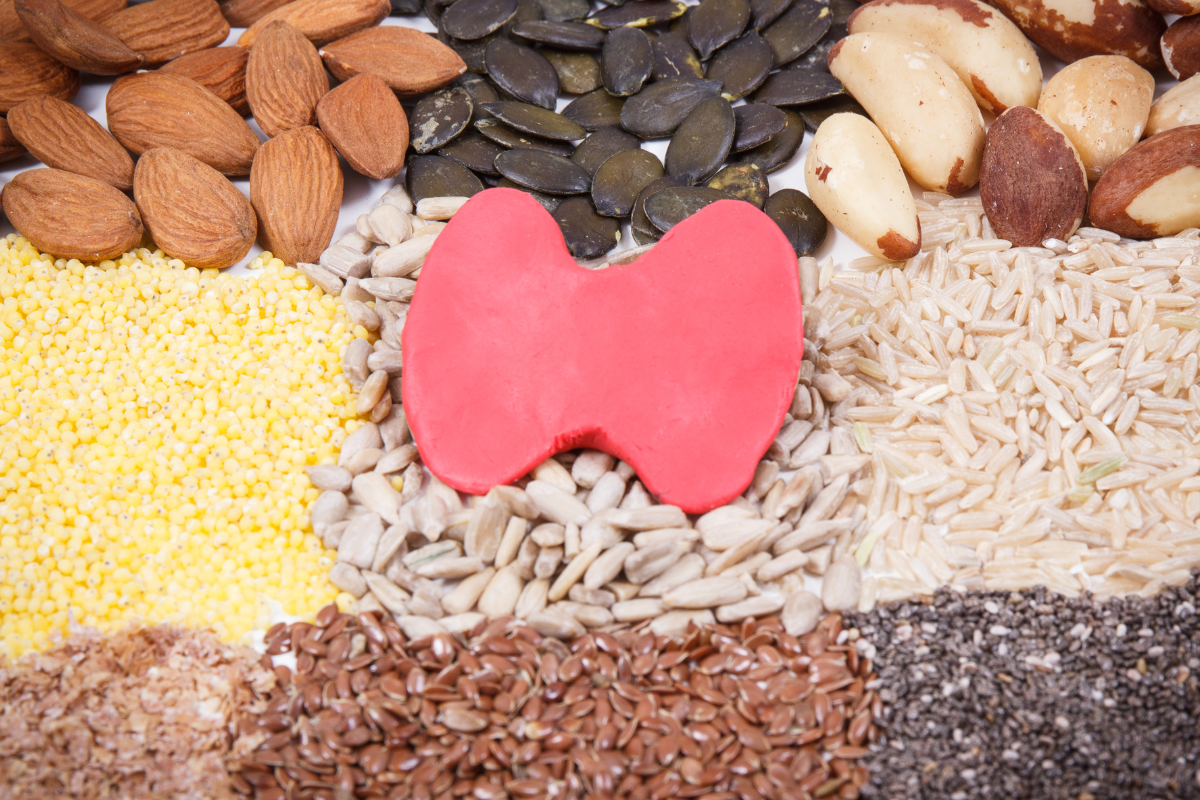Hypothyroidism is a common disorder affecting up to 5% of the population all over the world, with an additional 5% of people who live undiagnosed. This butterfly-shaped gland sits at the front of our necks and is responsible for several bodily functions, including but not limited to growth, temperature regulation and metabolism. Hypothyroidism is a condition where the body ceases to produce enough thyroid hormones. Patients of hypothyroidism show symptoms of weight gain, hair loss, tiredness, constipation, and forgetfulness among other symptoms.
Hypothyroidism occurs ten times more often in women than in men and also tends to trigger PCOS symptoms in women suffering from it. There are a number of nutrients that can help you deal with hypothyroidism and in this blog post, we will be discussing alternative foods to help tackle it..
Sea kelp is a superfood from the ocean. While the world is getting acquainted with this sea plant, it has been a part of Asian culture for ages. Iodine is the most crucial nutrient for a normal thyroid function. And, nothing beats sea kelp when it comes to iodine, for it’s the richest source of the nutrient we know of.
One of the most common symptoms of hypothyroidism is tiredness and fatigue. These symptoms can slow down your everyday life and even lead to habits of procrastination. Including beans and legumes in your diet can help ease these symptoms by giving you a quick boost of energy when you need it. They are inexpensive and packed with proteins, antioxidants, fiber, vitamins and minerals. Moreover, they are very easy to digest.
Constipation is probably one of the most prevalent symptoms of hypothyroidism. Replacing refined products with whole grains is the key to managing it. Ideally, it is preferred not to consume grains at all in this case. But if you absolutely cannot avoid it, opt for brown bread and brown rice over white rice and bread. Whole grains are rich in fiber and can help in revving up your metabolism to ease digestion.
Selenium is an important nutrient that helps in regulating thyroid hormones in the body. A great alternative to selenium supplements is to include nuts in your diet. Nuts are handy, tasty, and very nutritious. They are easily available and rich in antioxidants and healthy fats. Hazelnuts and macadamia nuts are particularly very high in selenium content and great for managing hypothyroidism.
A food item? No. A great source of vitamin D? Yes. Vitamin D plays an extremely important role. From maintaining our mood and digestive processes, to bone health and thyroid function, vitamin D is crucial. A deficiency of this vitamin can lead to triggering Hashimoto's disease (the leading cause of hypothyroidism). So, just spending some time in the fresh morning rays can make up for the lack of vitamin D in your body.
Final thoughts
Thyroid disorders don’t have any cures as such. We suggest that you visit your doctor for the best possible treatment. Besides that, some healthy lifestyle changes like a balanced diet and regular exercise can help with these issues. Moreover, you can always choose to opt for supplements for the nutrient requirements of your body. The body is the best healer, there is no disease in the world that the body can’t fight when given the right environment. We hope this list helped you out.

